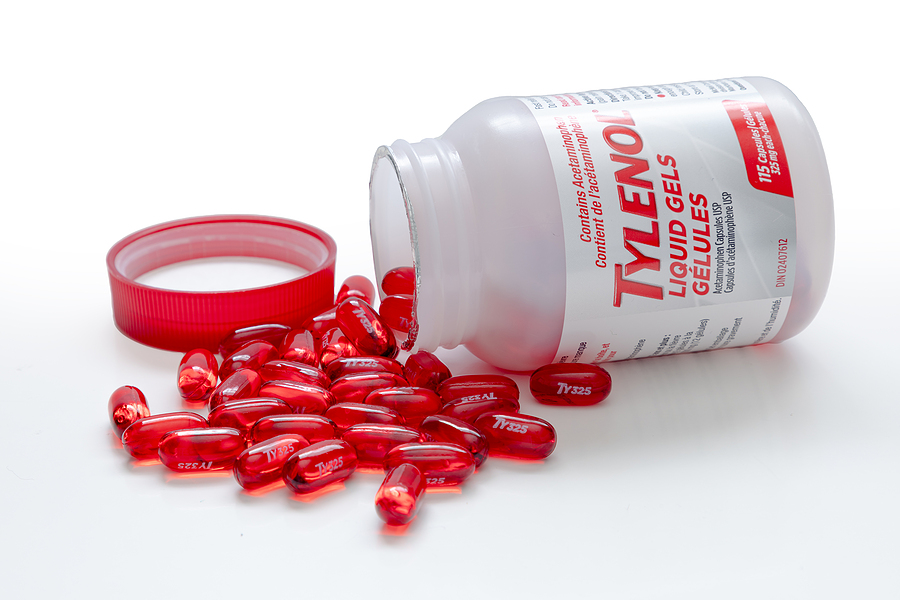“If you’re pregnant, don’t take Tylenol.”
Those are the words of President Trump at a high-profile White House press conference, flanked by health officials Robert F. Kennedy Jr. and Dr. Mehmet Oz, as well as mothers of children with autism.
The federal government is finally acknowledging a link between the prenatal use of acetaminophen—commonly known as Tylenol—and autism. The president and his team deserve the utmost credit for their courage in the face of relentless media spin, pharma-funded smears, and partisan attacks.
Since news of this announcement first broke, mainstream media outlets have engaged in political spin, attacking the messenger rather than grappling with the science. In their telling, Health and Human Services Secretary RFK Jr. indulges in fringe or baseless theories; therefore, any government report linking Tylenol to neurodevelopmental harm must be junk science.
This propaganda masquerading as news should not obscure two simple questions: If pregnant women consume more Tylenol than medically necessary, will more children likely develop autism and related neurodevelopmental disorders? And if the answer is “yes,” should pregnant women be warned about the risks the drug poses to their unborn children? These questions reveal the media’s spin for what it truly is. Autism may be complex, and it certainly has many causes.
But if Tylenol is one link in a causal chain, it is still contributing to an epidemic.
Whether we can lay blame at Tylenol’s feet conclusively should not be the question. Science has come nowhere close to conclusively establishing that prenatal consumption of valproic acid causes autism, but a warning accompanies the drug’s label nevertheless. The “precautionary principle,” which is regularly used to assess drug labels, teaches that we do not wait for conclusive proof of harm before warning of a risk.
That is especially true when the harm is significant—as an autism diagnosis surely is. Arming pregnant women with truthful scientific information does not shame them; it empowers them.
So what does the actual science show?
Over the last ten years, dozens of studies around the world have recorded an association between the use of acetaminophen by expectant mothers and their children exhibiting symptoms of autism or ADHD. Numerous studies have found a dose-response relationship—meaning the more acetaminophen the mother consumed, the greater the risk of neurodevelopmental harm. Recent studies have reinforced these findings.
One peer-reviewed study from February 2025 found that “accumulating evidence from human and animal model studies shows links between prenatal [acetaminophen] exposure and adverse reproductive and neurodevelopmental outcomes,” including “autism spectrum disorders.” Another study released by the Louisiana State University Health Sciences Center Shreveport in 2024 found “a strong enough correlation to indicate a warning to pregnant patients of the potential risks” of acetaminophen use during pregnancy.
It is true that an association does not prove causation. Confounding factors—such as genetics or the indications for use—could theoretically explain part of the link. But study authors have deployed numerous techniques to control for confounding, and the link between Tylenol and neurodevelopmental harm persists.
For example, studies have compared women who took Advil during pregnancy to those who took Tylenol. Both drugs are used to treat fever and minor aches, so if the indications for use were driving a spurious association, the two cohorts of women should look similar. They do not. The mothers who took Advil did not have children with a higher risk of neurodevelopmental disorders, while the mothers who took Tylenol did.
And though animals are not people, animal models are informative because scientists can ethically ensure that the test subjects do not produce results confounded by genetics. The animal tests reveal consistent evidence of neurotoxicity—to the point that one set of study authors concluded that Tylenol would not have been approved if it had to go through today’s FDA process.
Because the precursor to acetaminophen was discovered in the late 19th century, Congress “grandfathered” the drug onto the list of approved medications. Tylenol has never gone through a long-term randomized controlled trial in humans for safety and efficacy. To this day, scientists are still speculating about the mechanism by which Tylenol reduces fever or relieves pain.
Those who claim we need better studies or more certainty before concluding that Tylenol is causing neurodevelopmental harm are insisting on a standard that will never be met.
It would be unethical to conduct gold-standard randomized trials on pregnant women. Observational epidemiology, cellular models, and animal tests are the only games in town. Taking account of that entire body of evidence, a recently published study co-authored by the dean of Harvard’s T.H. Chan School of Public Health has called for urgent action to warn pregnant women about Tylenol’s risks. Not a ban. Not a suggestion to avoid Tylenol altogether, even when necessary to treat maternal fever. But a warning that arms pregnant women with truthful information so they can make the best possible healthcare decisions for themselves and their unborn children.
As President Trump noted, autism rates have surged by more than 400% since the year 2000. “Instead of attacking those who ask questions,” the president said, “everyone should be grateful for those who are trying to get the answers to this complex situation.” Is the dean of Harvard a conspiracy theorist peddling fringe science for having the temerity to agree with Secretary Kennedy?
Of course not. He is content to let the science—and his scientific analysis—speak for itself. The media should do likewise.


